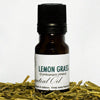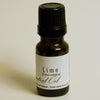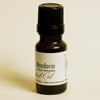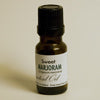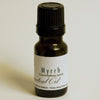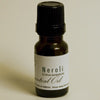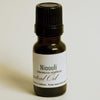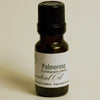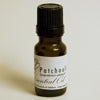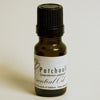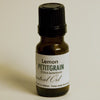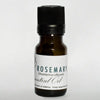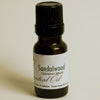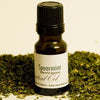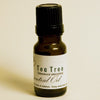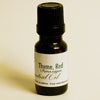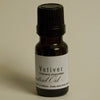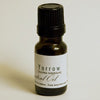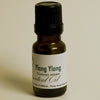Essential Oils
-
Lemongrass $ 7.99
Invigorating, energizing, clears the head and relieves fatigue. Relieves muscular pain and increases circulation. Tones and balances the skin. Cymbopogon citrusFamily: GramineaeSource: CochinPrecautions: Use well dilutedMethod of use: Massage and vaporizationNote: TopBlends well with: Basil,...
-
Lime $ 5.99
Refreshing and uplifting to a tired mind. Beneficial to greasy skin because of its astringent, toning and refreshing action. Citrus medicaFamily: RutaceaeSource: MexicoPrecautions: Photosensitiser, avoid sun after use.Method of use: Massage, Bath, VaporizationNote: TopBlends well...
-
Mandarin $ 6.99
Used in the perfumery and flavoring drinks.A relaxant and tonic, soothing and gentle to sensitive skin. Refreshing aroma has an uplifting quality. Used for insomnia and stress. Safe oil for children. Citrus reticulataFamily: RutaceaeSource: ItalyPrecautions:...
-
Marjoram, Sweet $ 14.99
Warm penetrating oil that is effective in dealing with painful muscles and swollen joints. A soothing and relaxing oil. Effective for insomnia. OriganumFamily: RutaceaeSource: EgyptPrecautions: Avoid if pregnant.Method of use: Massage, Bath, VaporizationNote: MiddleBlends well...
-
Myrrh $ 39.99
Known to enhance spirituality and used in meditation. Useful skin care oil. Traditionally used: Used in religious ceremonies, embalming mixtures and cosmetic preparation and perfumes by ancient Egyptians. Commiphora myrrhaFamily: BlurseraceaeSource: SomaliaPrecautions: Avoid if pregnantMethod...
-
Neroli $ 99.99
Neroli comes from the white blossoms of the Bitter Orange Tree and sometimes is known as Orange Blossom Oil. Used in perfumery.Very relaxing and soothing in highly emotional situations. Used to treat skin affected by...
-
Niaouli $ 18.99
Clearing and stimulating. Penetrating oil that works well with the respiratory system and poor circulation. Good for acne and oily skin. Melaleuca viridifloraFamily: MyrtaceaeSource: MadagascarMethod of use: Massage, Bath, Vaporization.Note: TopBlends well with: Basil, Cajeput,...
-
Orange, Sweet $ 6.99
The orange tree produces three oils: Orange from the peel, Neroli from the flowers and Petitgrain from the leaves.Reviving and refreshing fragrance helps reliev tension. Beneficial and soothing to dry, irritated skin. Used in perfumery....
-
Palmarosa $ 19.99
Sweet, floral scent with a hint of rose.Often used to adulterate the expensive Rose Oil.Used in soaps, cosmetics, perfumes and in flavouring tobacco.Useful in dry skin care.Calming yet uplifting to the emotions. Cymbopogon martiniiFamily: GramineaeSource:...
-
Patchouli $ 14.99
A strong, earthy aroma. One either likes the scent or hates it!Grounding and balancing. Tissue regenerator helping stimulate re-growth of skin cells. Heals rough, cracken skin, sores and wounds. Pogostemon patchouliFamily: Lamiaceae (Labiatae)Source: IndonesiaMethod of...
-
Peppermint $ 12.99
Beneficial for mental fatigue and depression.Used in breath lozengers, toothpaste and mouth wash.Digestive tonic.Excellent for aching feet. Mentha piperitaFamily: Lamiaceae (Labiatae)Source: USAPrecautions: Avoid if pregnant and use in moderation.Method of use: Massage, VaporizationNote: TopBlends well...
-
Petitgrain $ 14.99
One of the oils obtained from the leaves and twigs of the orange tree.Used in perfumery. Uplifting and refreshing. Tonic to clear up skin blemishes. Citrus aurantiumFamily: RutaceaeSource: ParaguayMethod of use: Massage, VaporizationNote: Middle to...
-
Rosemary $ 11.99
Strengthens mental clarity and awareness. Traditionally used in skin and hair care. Stimulates blood circulation to the scalp therefore being beneficial for promoting hair growth. Rosmarinus officinalisFamily: LabiataeSource: TunisiaPrecautions: Best avoid during pregnancy, and not...
-
Sandalwood $ 75.00
Relaxing oil helping to reduce tension and confusion. Balancing oil good for ageing and dehydrated skin. Santalum albumFamily: SantalaceaeSource: E. IndiaMethod of use: Massage, Bath, VaporizationNote: BaseBlends well with: Basil, Cypress, Frankincense, Geranium, Lavender Lemon
-
Spearmint $ 9.99
Stimulating and uplifting. Helpful with digestive problems. Menta spicataFamily: LamiaceaeSource: USAPrecautions: Use well dilutedMethod of use: Massage, vaporizationNote: TopBlends well with: Basil, Eucayptus, Lavender, Lemon, Lime, Grapefruit
-
Tea Tree $ 11.99
An active oil against bacteria, viruses and fungi. Very cleansing. Effective in treatment of pimples and acne. Can be added to shampoo to controll dandruff. Used in soaps, deodorants, disinfectants and air fresheners. Melaleuca alternifoliaFamily:...
-
Thyme, Red $ 19.99
Strengthens the nerves and aids in concentration. Strong antiseptic properties. Warming oil, good for circulation. Thymus vulgarisFamily: Lamiaceae (Labiatae)Source: FrancePrecautions: Avoid if pregnant. High blood pressure, use in moderation.Method of use: Massage and VaporizationNote: Top...
-
Vetiver $ 21.99
Calming oil for nerves. Alleviates muscular aches and pains. Moisturizing to dry, dehydrated or irritated skin. Vetiveria zizanoidesFamily: PoaceaeSource: Java/ChinaMethod of use: MassageNote: BaseBlends well with: Frankincense, Grapefruit, Lavender, Patchouli, Rosewood
-
Yarrow $ 69.99
Balancing oil and excellent for female reproductive system. Achillea millefoliumFamily: AsteraceaeSource: HungryMethod of use: Massage, BathNote: TopBlends well with: Bergamot, Clary Sage, Juniper, Lavender, Lemon, Rosemary
-
Ylang Ylang $ 19.99
Relaxing to the nervous system. Balance the hormones therefore valuable with problems associated with the reproductive system. PMSBalancing effect on the sebum therefore effective on both oily and dry skin. Canaga odorataFamily: AnnonaceaeSource: ComoresMethod of...
